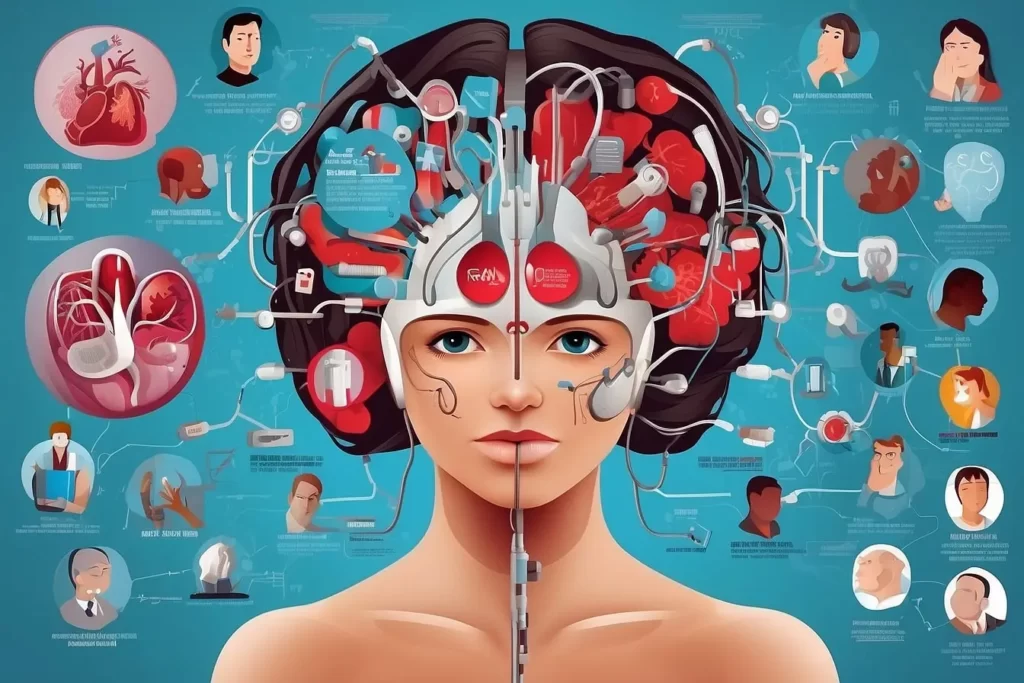
The Future of Health Problems Challenges and Concerns
The landscape of health problems is continually evolving due to a myriad of factors, including advances in technology, changes in lifestyle, environmental shifts, and even global pandemics. As we look ahead, it’s essential to anticipate the emerging health challenges that may shape the future of healthcare. This article explores the potential future health problems under various categories, providing insight into the complexities that may arise.
I. Infectious Diseases in a Globalized World
A. Antimicrobial Resistance
Antimicrobial resistance (AMR) remains a pressing global concern. Overuse and misuse of antibiotics, coupled with the natural evolution of bacteria, have created “superbugs” resistant to antibiotics. This trend threatens to render many medical treatments ineffective, leading to increased mortality rates for once-treatable infections.
B. Emerging Pandemics
The COVID-19 pandemic highlighted the vulnerability of our interconnected world. Future pandemics may emerge due to zoonotic diseases, increasing human-animal interactions, and the rapid globalization of travel and trade. Preparing for these outbreaks requires improved surveillance, robust healthcare systems, and international collaboration.
II. Lifestyle-Related Health Problems
A. Chronic Non-communicable Diseases
Chronic diseases such as heart disease, diabetes, and obesity are on the rise due to sedentary lifestyles and poor dietary choices. The future could see an even greater prevalence of these conditions, straining healthcare systems and decreasing overall quality of life.
B. Mental Health Challenges
Mental health disorders, including anxiety, depression, and addiction, are becoming increasingly prevalent. The integration of technology into our daily lives and the stresses of modern living may exacerbate these issues, making mental health a significant concern for the future.
III. Environmental Health Threats
A. Climate Change-Related Health Problems
As climate change accelerates, it brings new health challenges. Extreme weather events, rising temperatures, and altered disease vectors can lead to heat-related illnesses, vector-borne diseases, and displacement of communities. Adapting to these environmental changes is crucial for mitigating health risks.
B. Air Pollution and Respiratory Diseases
Urbanization and industrialization have led to worsening air quality, which can contribute to respiratory diseases like asthma and chronic obstructive pulmonary disease (COPD). In the future, the health impact of air pollution is likely to become even more pronounced, necessitating stricter environmental regulations.
IV. Technological Advances and Health Concerns
A. Privacy and Data Security
The integration of technology in healthcare, such as electronic health records and telemedicine, poses concerns about patient privacy and data security. Ensuring the confidentiality of health data in an interconnected world is an ongoing challenge.
B. Digital Addiction and Screen Time
Excessive screen time and digital device usage can lead to issues like digital eye strain and mental health problems. As technology continues to advance, society must address these emerging health concerns.
V. Aging Population and Healthcare Demand
A. Age-Related Diseases
The world’s population is aging, leading to an increased prevalence of age-related diseases like dementia, osteoporosis, and age-related macular degeneration. These conditions pose not only individual health challenges but also significant healthcare system strain.
B. Healthcare Workforce Shortage
The aging population also contributes to a shortage of healthcare professionals, exacerbating healthcare disparities and access issues. Strategies must be developed to train and retain a skilled healthcare workforce.
VI. Social and Economic Determinants of Health
A. Health Inequities
Disparities in access to healthcare and social determinants, such as income and education, continue to impact health outcomes. Addressing these inequities is essential for achieving better population health.
B. Lifestyle and Cultural Factors
Cultural factors and lifestyle choices, such as diet and physical activity, play a significant role in determining future health outcomes. Health promotion and education are essential for addressing these concerns.
In conclusion, the future of health problems is a complex and multifaceted landscape. Addressing these challenges will require proactive measures, including global collaboration, innovative healthcare solutions, and an increased focus on prevention. As we move forward, understanding and mitigating these potential health problems is essential for building a healthier and more resilient world.







